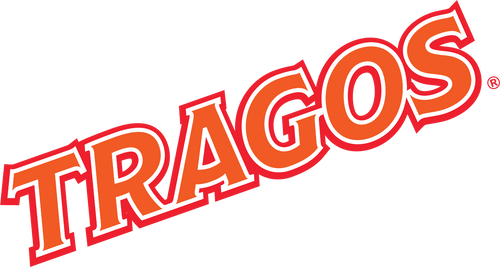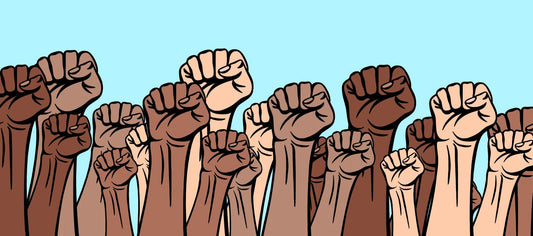There’s a lot of noise right now about DEI rollbacks, corporate boycotts, and “wokeness”—but not enough voices from the small businesses who actually got into those spaces thanks to DEI initiatives.
In case you missed the kickoff: back in January 2025, a federal executive order basically told DEI programs to pack it up and go home. Target backed off its DEI initiatives—including its $2 billion REACH program—and Walmart, Amazon, and several others followed suit. While these big corporations delete their diversity commitments and consumers respond with retail boycotts, businesses like mine—Latino-owned and built from the ground up to represent the underrepresented—are left stuck in the middle, wondering how we’re supposed to keep showing up in spaces that seem to be shrinking for us.
Getting into Target and Walmart wasn’t a walk in the park. The most common question I get asked is, how did you do it? The bigger question I keep asking myself is, how are we still doing it, especially with everything going on? Let me tell you about our journey getting onto shelves, to give some perspective that not everything inside an “evil corporation” is bad.
We built our business in 2019 with one game called Tragos, the Party Game for Latinos. It was just a passion project meant to be enjoyed by our family and friends. This was before I knew anything about the power of Latino consumers as a whole economy in this country. Quickly, I realized that a game like this didn’t exist anywhere else—and once it was launched publicly, the community reacted in a way I never imagined. That’s how I knew there was something special here. Like, wow, this might actually be more than a side-gig special.
I started selling independently on our Shopify website, using sales from preorders to self-fund and then reinvested back into the biz with Facebook and Instagram ads. Within the year, my team and I finally took everyone’s advice and got onto Amazon. It was complicated as hell, ate up our margins, and gave us stress wrinkles—but it exploded our sales. Amazon just has that reach and power in this country. Like it or not, you know you trust that “a” more than 99% of websites out there.
In 2021, someone from Target’s Diversity and Inclusion team slid into our inbox. She had seen our game in a social media ad. We met with her and got the rundown on what it really takes to get into big-box retail. Spoiler: it’s not as easy as people think.
Biggest takeaways:
- You need to prove that you’re already a successful, well-oiled business with impressive financials and a solid ass fan base.
- Getting onto shelves is half the battle. Staying on shelves? That’s the real test. Target included us in a couple of multi-product marketing pushes and ran some sales. The rest? All on us!
- No warehouse? You must have a distributor. You’ll need a third-party logistics partner who knows how to prep your product to meet retail-specific requirements. Think of it like playing Tetris with a hundred rules.
- You front the inventory bill—yes, you—and you won’t see payment until 90 days after it hits their warehouse.
- Before meeting the retail buyer, you better have your distributor locked in, a polished pitch deck, sales proof, and a prayer. Maybe also a flight ticket, because you might need to pitch in person.
In-store retail distribution is a huge goal for most small businesses. It gives you credibility, exposure, and a serious revenue boost. For us, it was a huge win! But also a big ball of stress. Are we doing enough? Should we push Target more? What about our own website? Why does every other drinking game look like it was made in a frat basement and still sell out before ours?
Still, we kept going. After Target, we partnered with our publishing team to help manage inventory and handle our relationships with big-box retailers. Through them, we got into Walmart. No interviews, no drama—just a green light. Compared to the two-year Target journey, it felt a little too easy. But hey, we weren’t complaining. Another win! Another moment we thought, we made it.
Then the boycotts started.
Out of nowhere, we found ourselves smack in the middle of a culture war. Boycotts were being organized. People were outraged. And meanwhile, we’re here trying to figure out how to ship enough inventory while also remembering to eat lunch.
One week we were all celebrating "Latino representation in retail," and the next, we were being ignored; it seemed as if we had personally canceled DEI. At some point, I thought, are we done here? Should I pull out before they pull me out? But taking a stand by adding to the issue and financially risking my business in the process was not the move. No, not after the years of sacrificing my career and sanity on Tragos, especially with the longer-term goals we have in store, beyond any retail shelf.
And for those wondering, “Why not just throw more money into ads?” Cute question. Ever since Apple’s privacy changes, paid ads have been like setting your last $50 on fire and hoping it turns into a unicorn. These days, it takes a much bigger budget to make a dent. And with our cash tied up in delayed retail invoices and trying to keep the lights on, we’re not exactly sitting on stacks for Meta’s algorithm mood swings. We depend on organic content, creators who believe in us, and loyal fans who spread the word 🫶.
Shelf space, by the way, isn’t a gold medal. It’s more like probation. If you don’t sell fast enough, you’re gone. Doesn’t matter if your game could cure cultural erasure. If you’re not moving units, you’re invisible. We get it—business is business. But maybe throw a few more bones toward BIPOC brands trying to compete without million-dollar budgets. Just a thought.
So when people boycott these stores for not doing the right thing, we get it. But if you’re taking a stand, make sure you’re not accidentally hurting the very people you’re trying to uplift. Skip the billion-dollar house brands. But don’t ghost the small business who spent years clawing their way onto the shelf, and are still trying to stay there!
We’re still out here, working hard to make every channel successful so we don’t have to rely on any one to keep us in business – easier said than done.
We’re not asking you to pick a side. We’re asking you to look a little deeper. If you’re in Target or Walmart most likely buying your essentials anyway, check out the small brands—the ones made with culture, purpose, and sweat equity. Until you stop shopping, regardless of DEI rules, they have a chance to stay.
And if you’d rather shop direct? Even better. Support us on our site. Follow us. Leave a review. Send our link to your group chat. Because visibility isn’t just a buzzword—it’s our lifeline. And right now, us small brands need our community more than ever.




